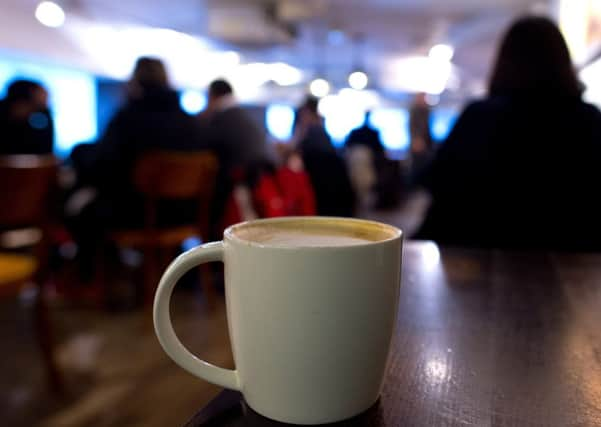Stephen Jardine: Coffee is bigger business than ever, helped by 90% profit margin


It’s a lovely place with great coffee served by friendly staff in stylish surroundings. I’m very happy to have it near me and will spent many hours and pounds there. But what on earth is it doing on a quiet suburban street in Edinburgh?
This isn’t some prime location the owners have snatched from under the noses of Starbucks or Costa. Instead it’s in a location that would make giving away champagne and free tenners a challenging business proposition. With no handy parking and a local population largely out at work all day, how can something like this have got beyond a daydream?
Advertisement
Hide AdAdvertisement
Hide AdThe short answer is that our love affair with coffee just keeps on growing. In fact it has just experienced it’s fastest period of expansion so far with market value up 37 per cent from £2.4 billion in 2011 to £3.4 billion last year, according to analysts Mintel.
Sales soared by 10.4 per cent between 2015 and 2016 - the biggest year-on-year boost in the past five years. That equates to about 55 million cups of coffee being served every day in the UK. Caffeine addicts also want their fix more often. Of the 65 per cent of the population who visit coffee shops, one in six do so on a daily basis.
Perhaps the most amazing things about the whole success story is how quickly it has happened. The entire coffee revolution only dates back 30 years.
Before that the big brand names were Nescafe and Maxwell House, selling coffee, but not as we know it now. Then in 1987 an American businessman called Howard Schulz visited Italy and spotted a gap in the market back home for coffee shops as social meeting places. The concept of Starbucks was born and it became an instant success. Ten years later the brand arrived in Britain offering American efficiency and sophistication but in recent years things have soured and Starbucks became as famous for tax avoidance as for coffee. British brands like Costa, Coffee Republic and Caffe Nero have led the competition but in the past decade there has been another change,
The increasing interest in provenance and buying local has produced a wave of independent coffee houses with just one or at most a handful of branches. While the big chains are happy to serve up ice caramel frappe lattes, the independents avoid the gimmicks and concentrate on offering the best coffee experience, invariably served up in cool surroundings with bricks and beards. They are the coffee purists.
For them making coffee is virtually a spiritual experience, however it does involve serving the public and that can be a challenging business at the best of times.
During the Fringe, the usual straightforward orders for flat whites become a riot of decaf skinny lattes made with goats milk and served under a crystal moon to people who’ve made attention seeking behaviour a way of life.
But when all this is over it will be back to business and coffee as usual. The Fringe will provide zero business for my new neighbourhood coffee shop but they probably don’t need jugglers ordering iced frappucionos to make a living.
Advertisement
Hide AdAdvertisement
Hide AdIn a £2.20 cappuccino, the average cost of ingredients is 8p for coffee and 6p for milk giving a profit margin of over 90 per cent. Then you just need to add in operating costs and premises. Suddenly an affordable side street in suburban Edinburgh looks like one of the smartest business decisions of the year so far.